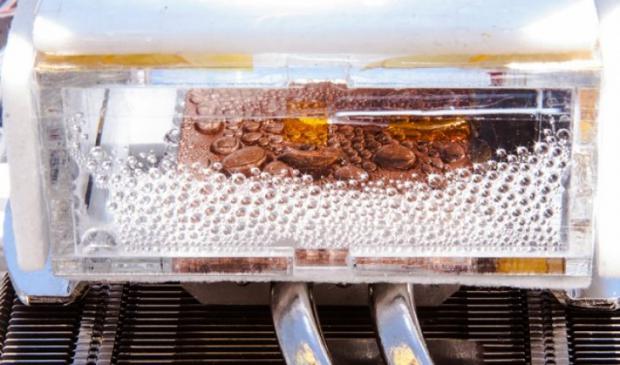
Breaking News
 The Self-Sufficiency Myth No One Talks About
The Self-Sufficiency Myth No One Talks About
 We Investigated The Maui Fires and The Cover-Up is Worse Than We Thought | Redacted
We Investigated The Maui Fires and The Cover-Up is Worse Than We Thought | Redacted
 The Amish Secret to Keeping Pests Out of Your Garden Forever
The Amish Secret to Keeping Pests Out of Your Garden Forever
 Scott Ritter: Full-Scale War as Iran Attacks All U.S. Targets
Scott Ritter: Full-Scale War as Iran Attacks All U.S. Targets
Top Tech News
 US particle accelerators turn nuclear waste into electricity, cut radioactive life by 99.7%
US particle accelerators turn nuclear waste into electricity, cut radioactive life by 99.7%
 Blast Them: A Rutgers Scientist Uses Lasers to Kill Weeds
Blast Them: A Rutgers Scientist Uses Lasers to Kill Weeds
 H100 GPUs that cost $40,000 new are now selling for around $6,000 on eBay, an 85% drop.
H100 GPUs that cost $40,000 new are now selling for around $6,000 on eBay, an 85% drop.
 We finally know exactly why spider silk is stronger than steel.
We finally know exactly why spider silk is stronger than steel.
 She ran out of options at 12. Then her own cells came back to save her.
She ran out of options at 12. Then her own cells came back to save her.
 A cardiovascular revolution is silently unfolding in cardiac intervention labs.
A cardiovascular revolution is silently unfolding in cardiac intervention labs.
 DARPA chooses two to develop insect-size robots for complex jobs like disaster relief...
DARPA chooses two to develop insect-size robots for complex jobs like disaster relief...
 Multimaterial 3D printer builds fully functional electric motor from scratch in hours
Multimaterial 3D printer builds fully functional electric motor from scratch in hours
 WindRunner: The largest cargo aircraft ever to be built, capable of carrying six Chinooks
WindRunner: The largest cargo aircraft ever to be built, capable of carrying six Chinooks
System extracts quarter-liter of water per day per kilogram of MOF from desert air

Current methods for extracting water from air require much higher levels – 100 percent humidity for fog-harvesting methods, and above 50 percent for dew-harvesting refrigeration-based systems, which also require large amounts of energy for cooling. So the new system could potentially fill an unmet need for water even in the world's driest regions.
By running a test device on a rooftop at Arizona State University in Tempe, Wang says, the team "was field-testing in a place that's representative of these arid areas, and showed that we can actually harvest the water, even in subzero dewpoints."
The test device was powered solely by sunlight, and although it was a small proof-of-concept device, if scaled up its output would be equivalent to more than a quarter-liter of water per day per kilogram of MOF, the researchers say. With an optimal material choice, output can be as high as three times that of the current version, says Kim. Unlike any of the existing methods for extracting water from air at very low humidities, "with this approach, you actually can do it, even under these extreme conditions," Wang says.

 RNA Crop Spray: Should We Be Worried?
RNA Crop Spray: Should We Be Worried?

